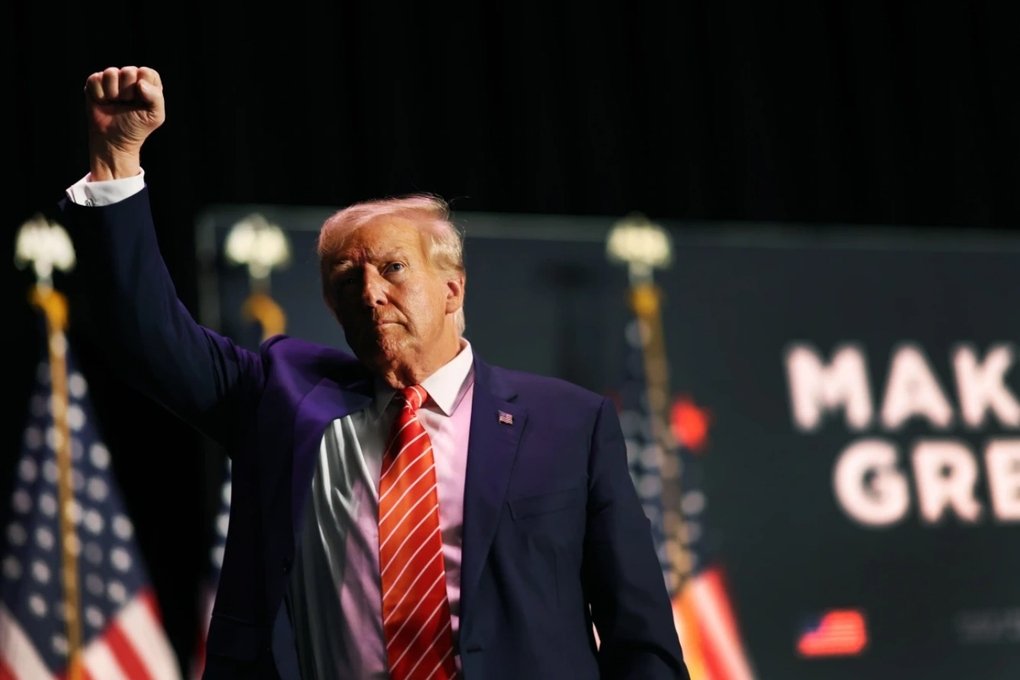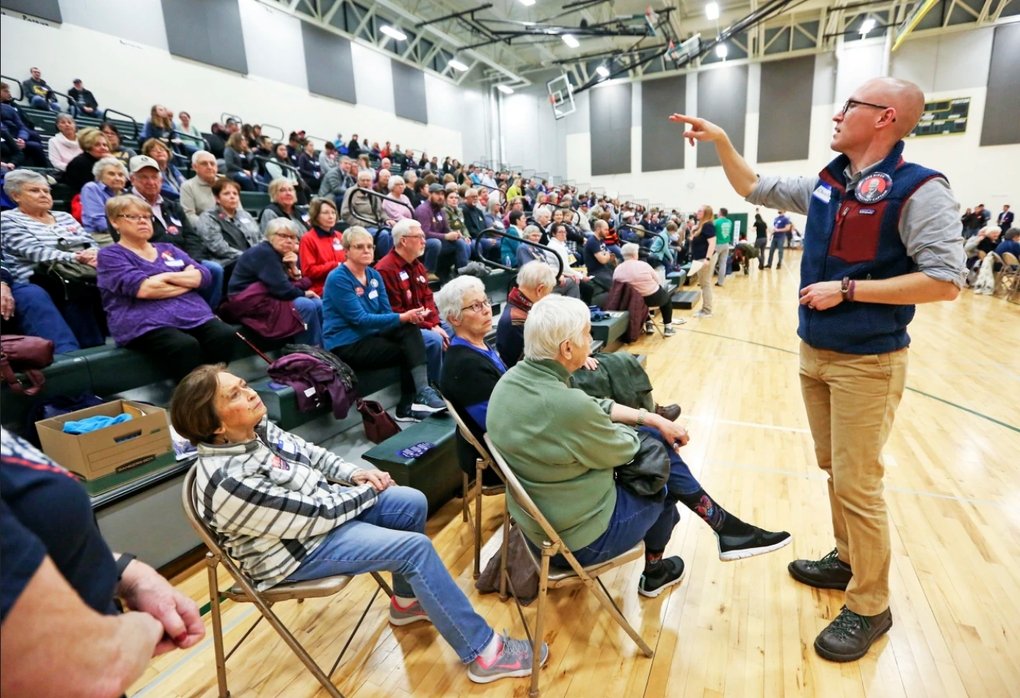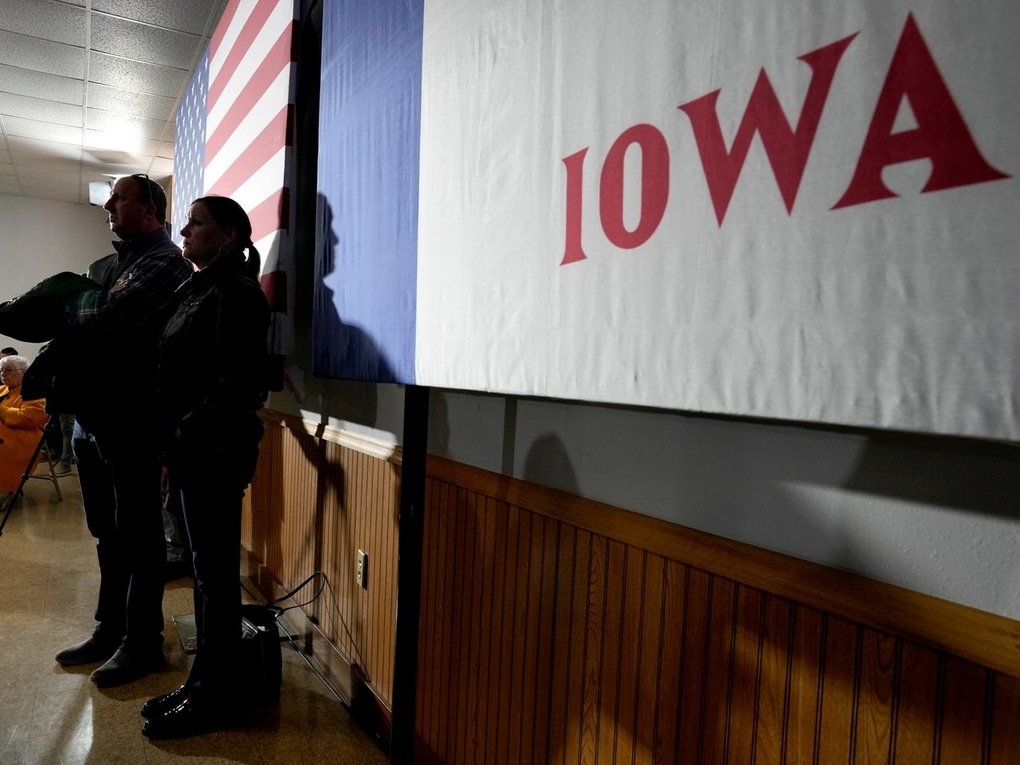(Dan Tri) – Every four years, Iowa plays an important role in shaping the US presidential race.
The audience listens to a Republican presidential candidate speak at Ankeny town hall, Iowa in November 2023 (Photo: AP).
On January 15 local time, Iowa Republican voters will go to the primary polls to choose who they want to be their representative in the race for the White House.
Although Iowa – a state of only 3 million people – does not have enough political power to decide who will rule the White House in 2025, its position as the first state to hold a primary vote makes Iowa play an important role.
Big question
Before the official presidential election in November, US states and territories will respectively hold primary votes for the Republican and Democratic parties to choose representative candidates.
Since the 1970s, Iowa has always been the first state to hold primary elections across the United States.
However, the January 15 vote in Iowa is still important.
This year, the big question in Iowa is whether any Republican candidate can compete with former President Donald Trump.
The final pre-election survey on January 15 by the Des Moines Register/NBC News/Mediacom showed that Mr. Trump was still leading his Republican presidential candidates in Iowa.
Specifically, 48% of people who will vote said that Mr. Trump will be their first choice.

Former President Donald Trump at a campaign event in Sioux City, Iowa in 2023 (Photo: Getty).
Different way of doing things
The way Republicans in Iowa vote for presidential candidates is different from most of the rest of America.
Most states hold primary elections according to the popular vote (primary) format.
But the Republican Party in Iowa organizes voting in a caucus format.
Also because of time requirements, the number of people participating in caucus elections is small.
Storm-like weather conditions in Iowa may also keep some people home this year.
In 2016, more than 186,000 people voted in Iowa’s most competitive Republican primary.

A person counts the number of supporters in the Democratic caucus election in Dubuque, Iowa in February 2020 (Photo: AP).
Some limitations
Caucus voting in Iowa may not produce quick results.
In 2020, people could not know the full results of the Democratic primary election in Iowa for many days because of technical problems.
The winner of the Iowa primary doesn’t always win the national party nomination, especially on the Republican side.
However, Iowans often say that their job is not to determine the winner of the nomination but only to narrow the pool of voters for other states.
